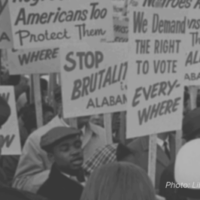Nationwide—The unemployment rate dipped to 4.0% in January according to new data from the Bureau of Labor Statistics. The unemployment rate for Black workers was 6.2% and the unemployment rate for Latinx workers was 4.8% compared to a rate of just 3.5% for white workers. Unemployment among Asian workers was 3.7%. Continuing disparities in unemployment rates are a result of structural racism in the U.S. labor market.
“It’s not an accident or a coincidence that Black workers are unemployed at nearly twice the rate of white workers,” said Rebecca Dixon, president and CEO of the National Employment Law Project. “It’s the predictable result of public policies that allow racism to persist in our economy. Throughout the nation’s history, we’ve seen how policy choices can reinforce barriers to employment and good jobs for workers of color or dismantle them. The Trump administration’s attacks on civil rights—from the outrageous firing of Equal Employment Opportunity Commissioners to the repeal of protections against workplace discrimination for federal contract workers—are calculated to drag us backward. Ultimately, this will erode rights for all workers.”
Researchers find that occupational segregation for Black workers dramatically declined from 1940 to 1980, while wages for Black workers rose dramatically in the 1960s and 1970s. Policy victories won by civil rights and workers’ rights activists, including anti-discrimination laws, affirmative action programs, workplace protections, and higher minimum wages reduced occupational segregation, boosted pay for Black workers, and shrank racial wage gaps. But conservative backlash bolstered white supremacy and stalled these gains, harming workers of all backgrounds.
In a new era of backlash, NELP’s freshly launched Worker Policy Watch is tracking how federal policies are shaping workers’ rights and what’s at stake for working people under the Trump administration.
The economy added 143,000 jobs in January, with the strongest gains in health care, which gained 44,000 jobs. The retail industry and social assistance also added employment. Mining, quarrying, and oil and gas extraction lost jobs.
Unemployment insurance (UI) is often overlooked as a racial equity policy, but in a world of elevated Black unemployment rates and disparities in access to benefits, reforming UI is critical to advancing racial justice. The Unemployment Insurance Modernization and Recession Readiness Act, introduced in the previous Congress by Senators Ron Wyden (D-OR) and Michael Bennet (D-CO) and Representative Don Beyer (D-VA), sets nationwide standards for unemployment insurance, mandating that states offer at least 26 weeks of unemployment benefits, raising benefit amounts to replace a greater share of workers’ prior earnings, and increasing coverage for part-time workers, temp workers, and workers whose earnings fluctuate over time. The bill also establishes a new, federally funded Jobseekers Allowance to support jobless workers who would not otherwise be covered by unemployment insurance and modernizes the Extended Benefits program that makes additional weeks of unemployment benefits available in times of high unemployment.



